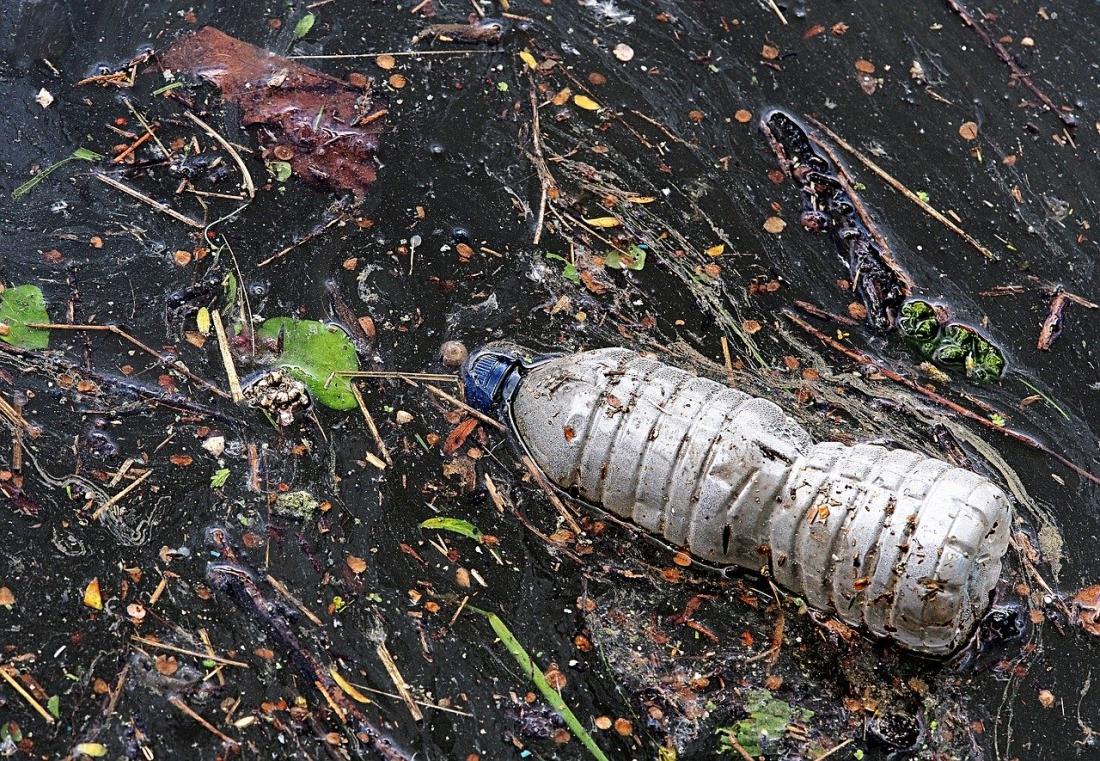"The origin and fate of riverine plastics is complex. Influencing factors can include the type of waste management, location of cities, dams, and litter traps, seasonality of rainfall and river discharge, and flood events," researchers say. [Image added by Asia Research News]
In the first study of its kind, researchers from the Netherlands examined the amounts of floating plastic debris at 24 locations on rivers in seven European and Asian countries.
Lead author Caroline van Calcar, from Delft University of Technology, said: “Land-based plastics, washed into the ocean by rivers, are believed to be the main source of marine plastic litter. It is a global issue on which urgent action is needed.
“However, to date we had very little hard evidence of the amount of plastic rivers contain. Our aim was to gather this evidence in a consistent way, to allow for a direct comparison of rivers in different parts of the world.
“Therefore, as well as several main European rivers (in The Netherlands, France, Italy), we looked at river basins with high amounts of mismanaged plastic waste (in Thailand, Indonesia, Malaysia, and Vietnam). We found that the average scale, composition, and distribution of plastic debris transport over the riverwidth varied considerably for each river. Our results show that local in-situ data is essential to understanding the origin and fate of river plastic debris, and to optimise prevention and collection strategies.”
The rivers the research team studied were: The Rhine (The Netherlands); the Seine (France); the Rhône (France); the Tiber (Italy); the Saigon (Vietnam); the Mekong (Vietnam); the Chao Phraya (Thailand); the Pahang (Malaysia), the Klang (Malaysia); the Kuantan (Malaysia); the Ciliwung (Indonesia); the Pesanggrahan (Indonesia); and the Kanal Banjir Timur (Indonesia).
They used visual counting and debris sampling to assess the scale of plastic transport, its distribution across the river width, and the plastic polymer composition.
Co-author Dr Tim van Emmerik, from Wageningen University, the Netherlands, said: “Several waterways in Indonesia and Vietnam contained up to four times more plastic than waterways in Italy, France, and The Netherlands in terms of plastic items per hour.
“According to recent model estimates, the top 10 to 20 polluting rivers are mostly located in Asia and account for 67-95 percent of the global total. For the first time, our results provide observational evidence that, for the sampled rivers, southeast Asian rivers transport considerably more plastics towards the ocean.
““The origin and fate of riverine plastics is complex. Influencing factors can include the type of waste management, location of cities, dams, and litter traps, seasonality of rainfall and river discharge, and flood events.
Ms van Calcar concluded: “It is also important to note that the composition of plastic debris can vary widely for one polymer type between different rivers in the same country. The composition varies also between locations in one river. This may be due to differences in plastic consumption and management practices, as well as transport mechanisms, and other factors. The plastic polymer composition can provide information on the type of product that was littered. Therefore, determining the type of plastic can lead to the source of the plastic, and hence to improvement of waste management and regulation.”
ENDS
Contact
For an advance copy of the paper, further information, or spokesperson contact details, please contact Simon Davies, Senior PR Officer Tel +44 (0)117 930 1110 or +44 (0)7720 496 716
Email [email protected]
About Environmental Research Letters
Environmental Research Letters covers all environmental science, providing a coherent and integrated approach including research articles, perspectives and review articles.
About IOP Publishing
IOP Publishing provides publications through which leading-edge scientific research is distributed worldwide. IOP Publishing is central to the Institute of Physics, a not-for-profit society. Any financial surplus earned by IOP Publishing goes to support science through the activities of the Institute. Go to http://ioppublishing.org or follow us @IOPPublishing.



